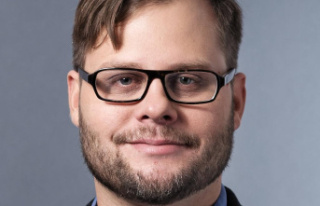Schwerin (dpa/mv) - Mecklenburg-Western Pomerania's Prime Minister Manuela Schwesig (SPD) gives up her clear no to the lifetime extension for German nuclear power plants in view of the impending energy bottlenecks in winter. "In a situation like this, there shouldn't be any bans on thinking," she said live on Monday on the Welt TV station. Energy security is important for the population and for the economy and therefore has top priority.
Schwesig does not believe that there can be a consensus on continuing nuclear power production for an unlimited period of time, as demanded by her Saxon counterpart Michael Kretschmer (CDU): "That will certainly not find much agreement with many, because there were also good reasons to get out," said the SPD politician. According to Kretschmer, nuclear power plants should continue to run as long as the federal government has not developed a new concept for the energy transition. Kretschmer told the "Handelsblatt" (Monday).
At a meeting with Federal Chancellor Olaf Scholz in Berlin in mid-June, Schwesig rejected the use of nuclear power beyond the end of 2022, pointing out that the storage of nuclear waste was still unclear. No federal state wanted the repository. "And if nobody wants nuclear waste, then we can't seriously say that nuclear power plants should continue to operate," she said.
The opposition FDP in the Schwerin state parliament welcomed Schwesig's change of course: "In the interests of our energy security and with a view to rising prices, we must not stick to the status quo driven by ideology, since the geopolitical framework has changed fundamentally," said parliamentary group leader René Domke. Every kilowatt hour produced will help to get through the coming winter without any problems. "This applies all the more if we want to stop generating electricity from gas in the near future," says Domke.
Schwesig advocated replacing gas in power generation even more consistently with wind and sun. A third of the gas is currently used to produce electricity. "Here we should look even more closely at how we can actually generate more of this electricity from renewable energies and not use the gas for it. I still see potential there," said the head of government in Schwerin. In addition, it was a step in the right direction to continue using the coal-fired power plants.












